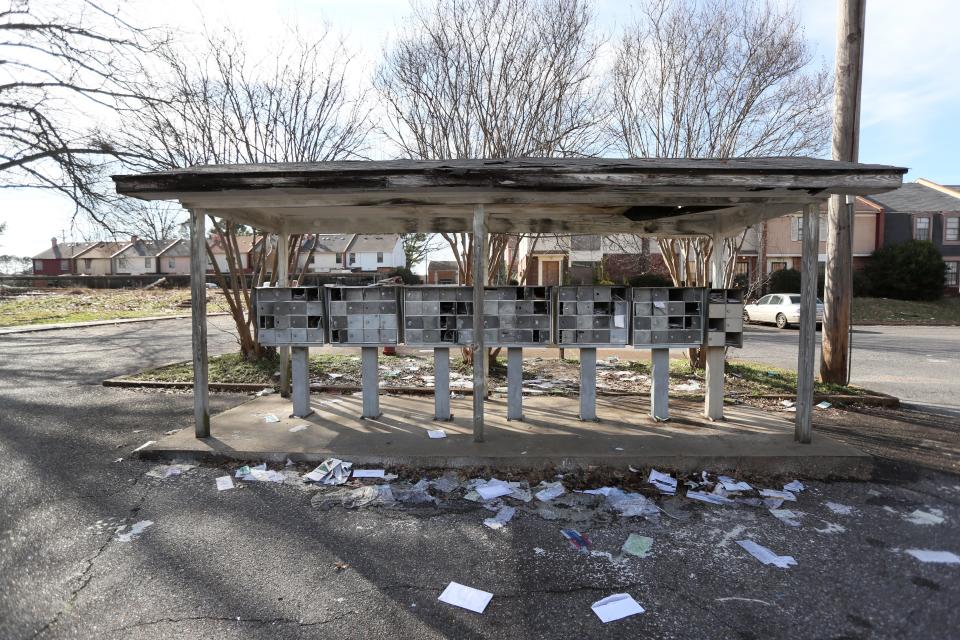Shelby County Environmental Court holds neglectful property owners accountable | Opinion
Memphis has many housing challenges that are not getting the attention they deserve.
The rising cost of rent and increasing cost to buy a home are alarming. The shortage of tens of thousands of quality affordable housing units for families that desperately need them is appalling; and the countless substandard occupied rentals that plague our most vulnerable should embarrass us all in a civilized society. But my focus today is on the approximately 17,000 vacant, abandoned and deteriorated single-family houses in neighborhoods across Shelby County. Suffocating us are people-less houses with no path to occupancy whose owners have disappeared and ignored every effort by people of good will to find resolutions.
I was born and raised in Memphis, and I work as a public interest lawyer here. My family is committed to a future in this jewel of a city. My city.
My dream is to stop the wave of vacant, abandoned and deteriorated properties from ruining our neighborhoods.

Thanks to the Shelby County Environmental Court, our state legislature and a unique community driven partnership, a viable solution to abandoned structures is now gaining momentum. Cases brought in the Environmental Court under the Tennessee Neighborhood Preservation Act are holding owners accountable to fix up, pay up or give up their abandoned and neglected properties.
And the Tennessee Neighborhood Preservation Act cases are only a small portion of the cases heard by the Environmental Court. Unfortunately, misinformation abounds. I want to dispel misinformation about this powerful tool and be sure the narrative in the public conversation isn’t controlled by outsiders and special interest groups.
Meet Environmental Court Judge Patrick Dandrage
The Shelby County Environmental Court is headed by another Memphis native, Judge Patrick Dandridge. This year, Judge Dandridge won reelection with almost 60 percent of the vote —more than double the vote share of each of his opponents. He is doing something wonderful for the people to be reelected by those stunning margins. Judge Dandridge has devoted his legal career to improving the living conditions of Memphians, who are surrounded and severely affected by these problem properties in terms of health, safety and economic welfare.

Since he was recommended for appointment in 2018 by Judge Larry Potter, founder of the Environmental Court, Judge Dandridge has increased the number of cases heard by 50%. The court now hears approximately 1500 cases every month. Judge Dandridge created the “Litter Docket,” where 80% more litter and illegal dumping cases are now heard. Judge Dandridge has increased the number of community courts where property conditions cases can be heard and has set in place policies and procedures that made possible a 2000 percent increase in receivership appointments to rehabilitate abandoned properties under the Tennessee Neighborhood Preservation Act.
Detractors of the Environmental Court actually have claimed – some louder than others – that the Environmental Court is actually harmful to the residents of this city. Allow a native son of this city—who happens to be a lawyer specializing in this field and appearing regularly in the Environmental Court – to speak some truth on the subject.
The Environmental Court presides over property conditions issues brought before it, applying the law of Tennessee and the ordinances of Memphis and Shelby County to each set of facts presented. The Tennessee Neighborhood Preservation Act authorizes the City of Memphis to petition the Environmental Court to hold owners of vacant, abandoned and deteriorated properties accountable.
These properties are often owned by defunct corporations or by the heirs of deceased persons. Often, the people who technically “own” these properties no longer have a connection of any sort to Tennessee and many times patently refuse to spend one penny on their own property to maintain it or even pay taxes. Such neglect in violation of state law creates a serious threat to the health, safety and welfare of the entire community. The Environmental Court applies the law to the unique facts of each case. All owners are given a chance to come into compliance by repairing their own property, but if they do not, they may face losing control of it so that someone else who will respect nearby property owner’s rights and pay taxes can take control.
See what receivership can do for Memphis
I would invite you to consider one of the first receivership appointments in which I was involved as counsel for the receiver. This property was owned by a widow who died in 2018 intestate with no known heirs. She was a hoarder who left behind a house filled with extensive mold growth and feces from the numerous wild animals that resided therein. You could smell the property from the street. People lived in homes on all sides, some with children. No one knew what to do. After extensive efforts to reach possible heirs, and after all constitutional due process was followed, the Environmental Court appointed a receiver. Nine months later, the house was cleaned out and sold to a third party who completed a full rehab in the midst of the pandemic.
Today, new owners love their renovation in a thriving east Memphis neighborhood and neighbors praise the results of the work of the receiver that was authorized by the Environmental Court. Since that appointment, I have been involved in over a dozen additional cases – each unique – each a final, positive solution to a longstanding neighborhood crisis.
Drive by 1428 Estate, 2366 Larose and 109-111 Eastview Drive. Each of these is an example of what receivership can do for Memphis. Each is surrounded by well-cared for properties whose owners are grateful for the removal of blight that was made possible by the actions taken in Environmental Court to protect them.

The truth is that the Shelby County Environmental Court is a gift that keeps on giving in Memphis neighborhoods. It is a necessary and powerful tool which we as a community should rally to support and strengthen. As a proud Memphis resident, I believe it is imperative that the truth be told to battle the misinformation that so often seeps into the public conversation. We all have a lot of work to do to make every Memphis neighborhood free of blight and abandonment, but we should all be aware of, and grateful for, the daily work that the Environmental Court does to bring about positive change.
Attorney Vincent Sawyer represents the Tennessee Receivership Group, which has completed multiple rehabilitations of abandoned homes in Memphis as a court-appointed receiver.
This article originally appeared on Memphis Commercial Appeal: Environmental Court provides supports for Memphis' neighborhoods

